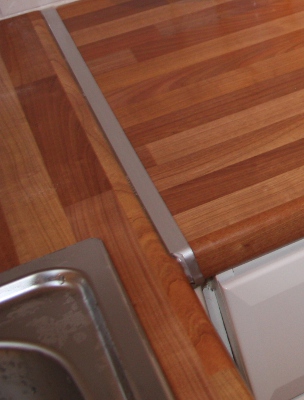Get the best from your carpenter
Most of us don’t know a dovetail joint from a bird mouth cut, so working with a carpenter or joiner can sometimes feel like a foreign exchange trip. With that in mind, here are 10 tips from Oliver Gibbs on how to work well with your carpenter or joiner.
1. Know what you want
Tell your carpenter what you do and don’t want in as much detail as possible. You don’t need to get technical; pictures or drawings are not necessary but can be helpful. Specific information will help in the accurate planning and pricing of a job. (More on quotes)
2. Don’t hesitate to ask questions
Carpenters should know their trade but only you know your requirements and house. So if anything does not make sense, ask. Detailed discussions about plans, processes, materials, and costs will prevent misunderstandings happening later.
3. Get the relevant permissions
You may need planning permission, building regulation approval or third party agreements for your project. This can take months to arrange and should be completed before work begins. (More on planning)
4. Be flexible about start date
Good carpenters are in demand and have to manage a busy, and sometimes unpredictable, schedule. It is therefore much appreciated if customers are accommodating about the exact day when work begins. (Check our availability)
5. Make space for work
Clear away items from the work site and make sure it is safe. Children and animals don’t mix well with power tools, apparently. Carpenters should be properly insured but it is best not to use it! (About our insurance)
6. Allow access to facilities
A carpenter will need access to basic facilities like electricity, water and a toilet. If you are not able to provide these for any reason, do let your carpenter know before hand as these may need to be brought in at extra cost.
7. Clarify any changes
You may change your mind about the details of work as the project progresses. Discuss any changes with your carpenter and find out about the effect on price. Your original quote will be based on your original plans and may need revising.
8. Flag up problems quickly
Raise any concerns that you have with your carpenter during or after the work as soon as possible. A good business should have a robust complaints procedure and correct faults. Use it if needed. (Our complaints procedure)
9. Have payment ready
Delays in payment can put back the work schedule, particularly where staggered payments have been agreed. Plus carpenters need to make a living like everyone else! (More on payment)
10. Recommend to a friend
Word of mouth is still often the best way to find a good carpenter. By telling others about your carpenter, you will help ensure that they do not fall foul of rogue tradesmen and you will make a good carpenter happy!
A building project need not feel like an awkward foreign exchange. By following these simple guidelines, you should get the most out of your carpenter or joiner and end up with a great product to enjoy.




0 Comments